Several years ago I spent quite a bit of time studying the early 1900s through WWI. I read nonfiction and fiction about and from that era. So I was fascinated when I discovered Switchboard Soldiers: A Novel by Jennifer Chiaverini. How had I never heard even a hint about these women who were the first female soldiers in the United States military?
Chiaverini tells her story by following the lives of three of the Switchboard Soldiers. She has so much research to share with the reader that, though “A Novel” is part of the title, it reads more like nonfiction. I was disappointed that by the end of the book I didn’t feel a connection with any of the three women, and I didn’t really have a clear picture of what they had personally experienced.
Next, I read The Hello Girls: America’s First Women Soldiers by Elizabeth Cobbs. This book is nonfiction, so I was hoping for details about switchboards, the phone systems of the times, and what the women did all day. However, Cobbs’s focus is more on the politics than the details I am interested in. There is a lot about the progress of women’s suffrage in the United States and the attitudes of the men in power. There is quite a bit of information about the causes of WWI and, when the women do get to Europe, there is more information about significant battles than about what the women were doing.
Picture book biography to the rescue!
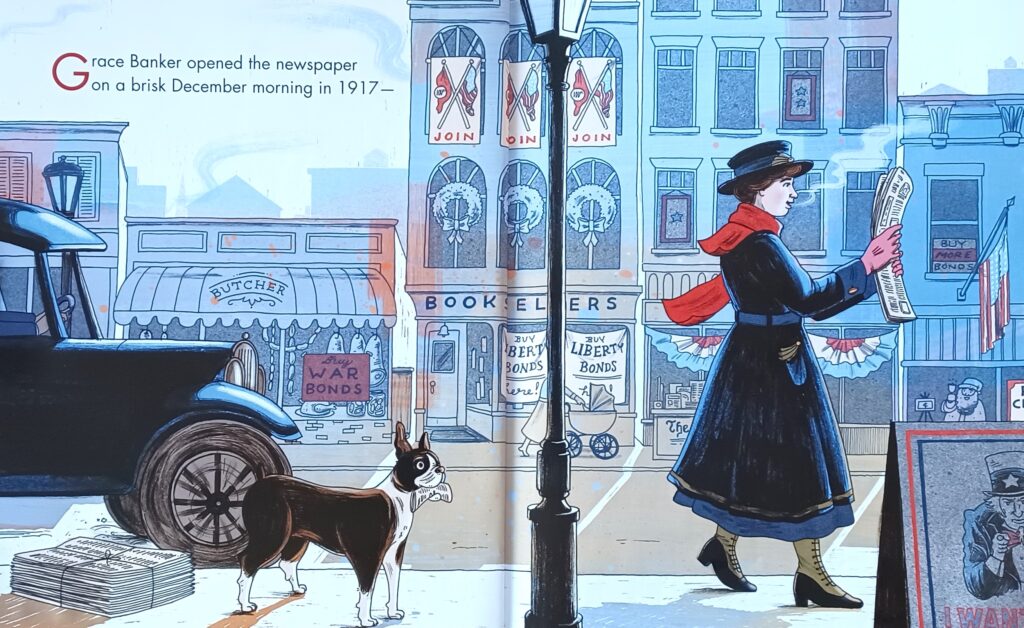
In Grace Banker and Her Hello Girls Answer the Call: The Heroic Story of WWI Telephone Operators, Claudia Friddell brings Grace Banker to life in fewer than forty pages. Grace Banker was an unusual woman for her time. She was a 25-year-old single woman who had graduated from college, majoring in French and history. She had a career in which she made enough money to support herself. According to Chiaverini’s book, despite her education and career, Grace still needed a man to sign a lease for her as guarantor.
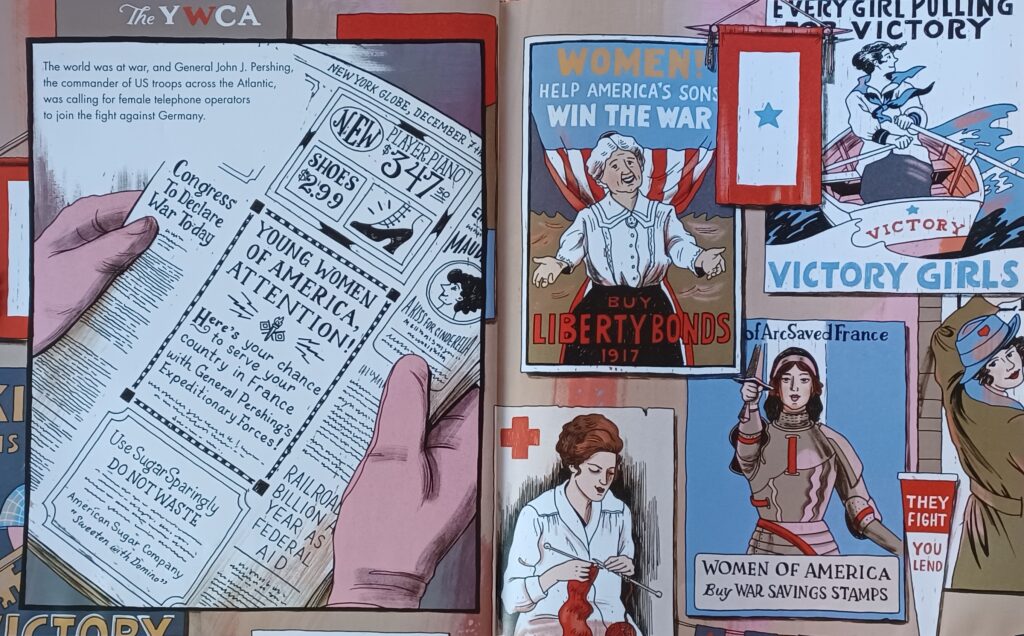
Most of the 7600 women who spotted the ad announcing the opportunity for them to serve their country would also need their parents’ permission to apply.
When American men began to go to war by the hundreds of thousands, women took up the slack. They filled the jobs men left open, planted Victory Gardens, sold war bonds, worked with the Red Cross, and conserved food and fuel. But women had never been allowed in the army. They didn’t even have the right to vote.
These women went to war anyway. They loved their country and wanted to help win the war and to support the boys in the trenches.
They faced the dangers and hardships of war without complaining. Almost all the Signal Corps women worked and hoped to be sent as near the front as possible.
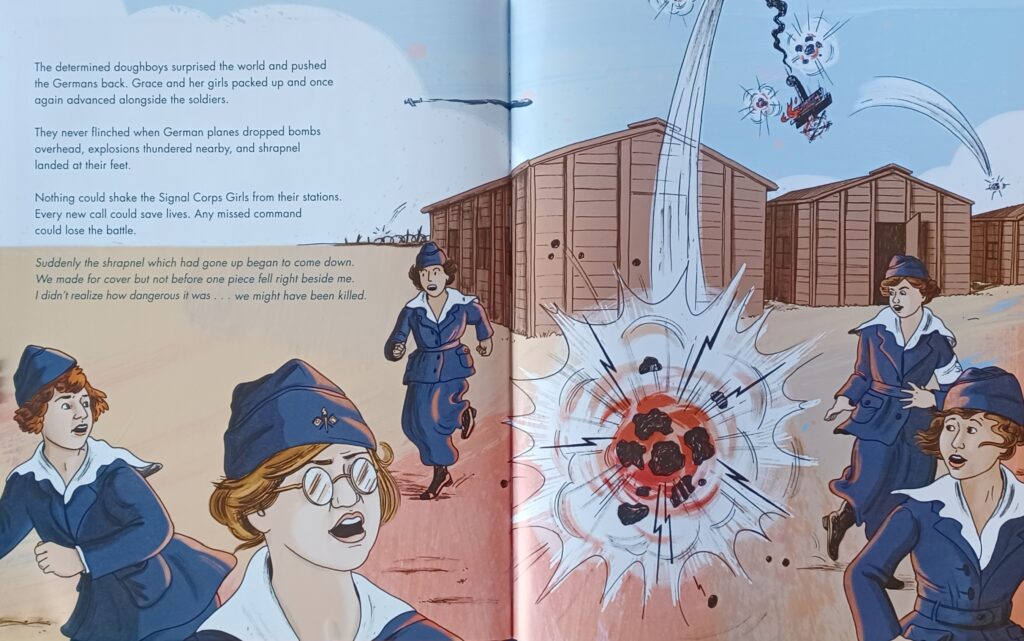
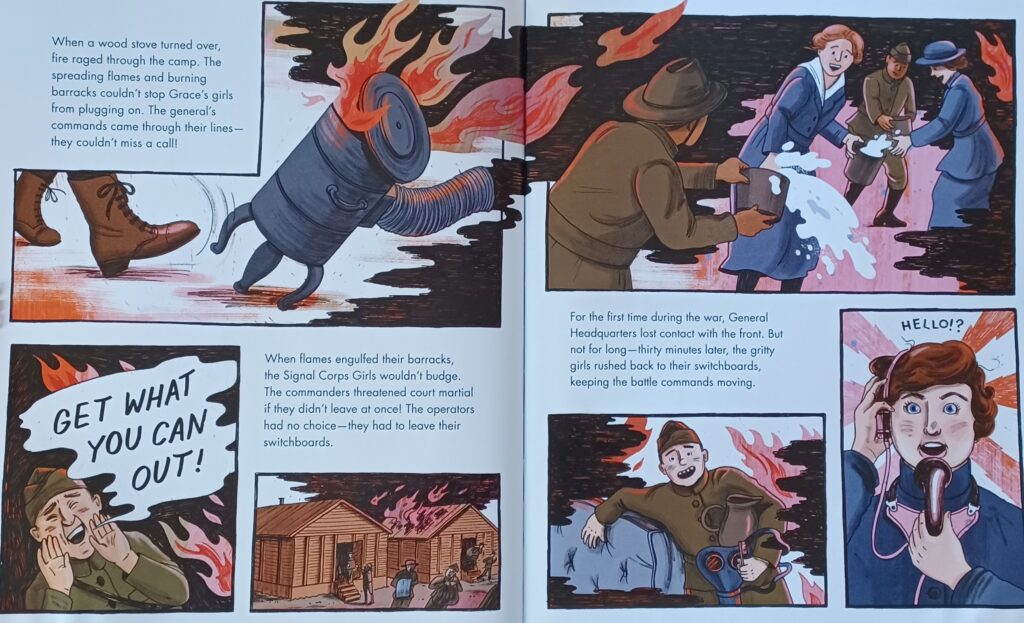
The women of the Signal Corps had signed up for the duration, and many of them were among the last Americans to come home. Grace Banker was the first woman soldier to earn the U.S. Army’s highest honor for someone not in combat, the Distinguished Service Medal.
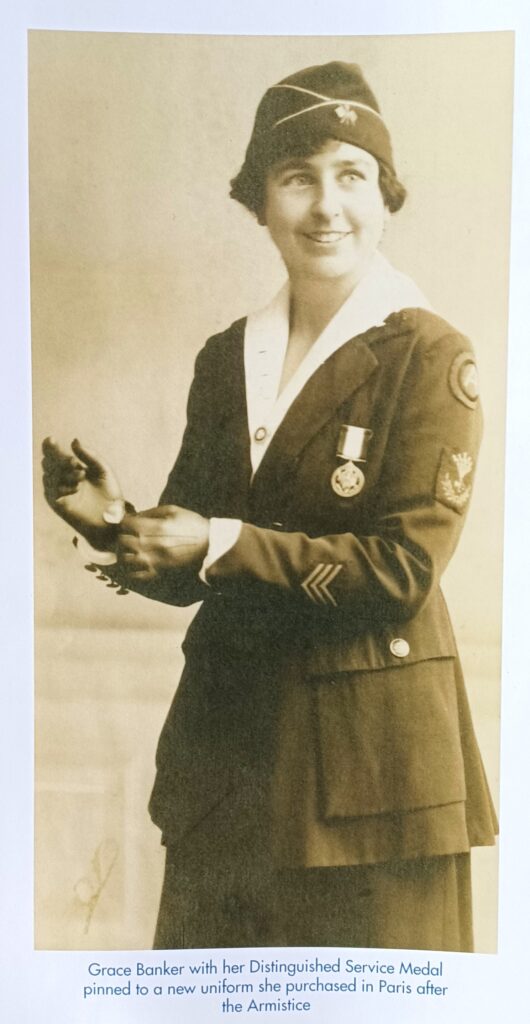
However, “When the Signal Corps women return, they learn they are considered civilians and do not qualify for the benefits awarded all other veterans, including those who never served in France.”
It wasn’t until 1977 that Congress passed legislation recognizing the Signal Corps women as veterans, and it was another two years before the few surviving members received their Victory Medals.
You can find out more about this book at Biblioguides.com.